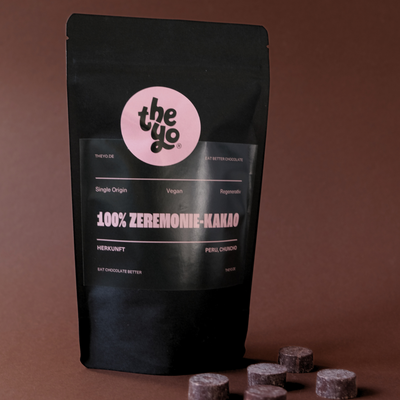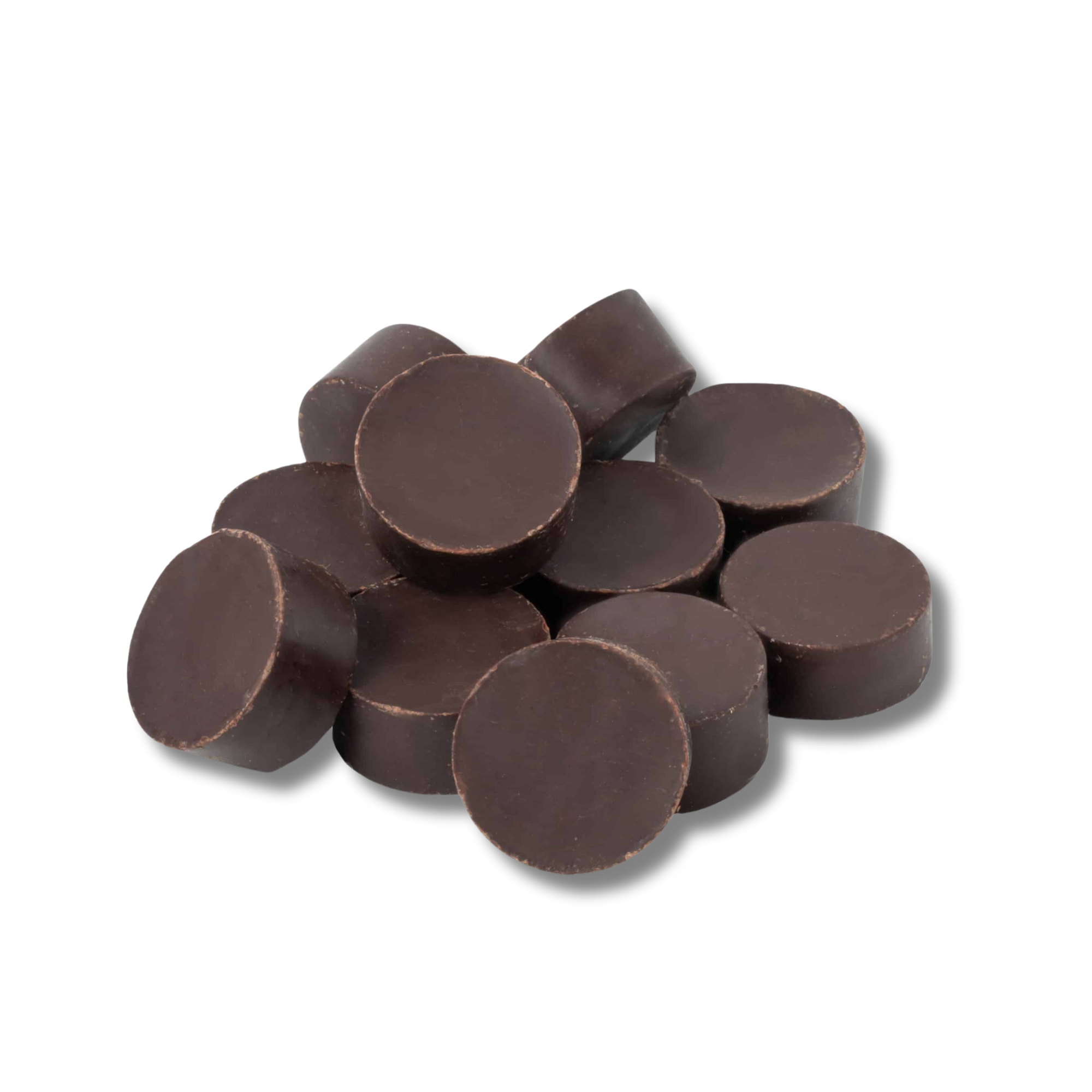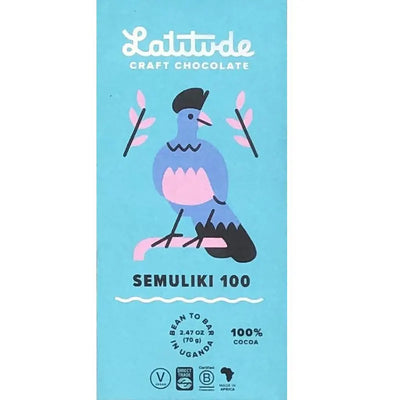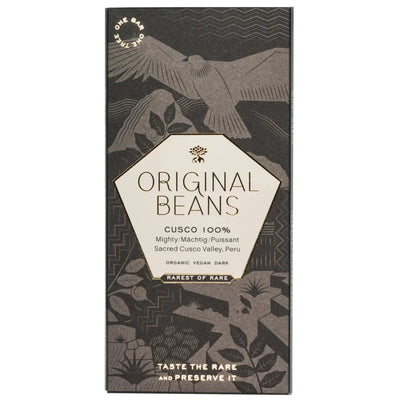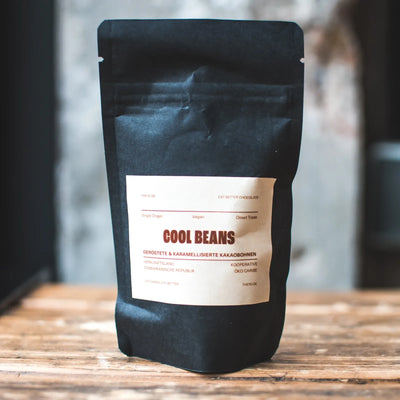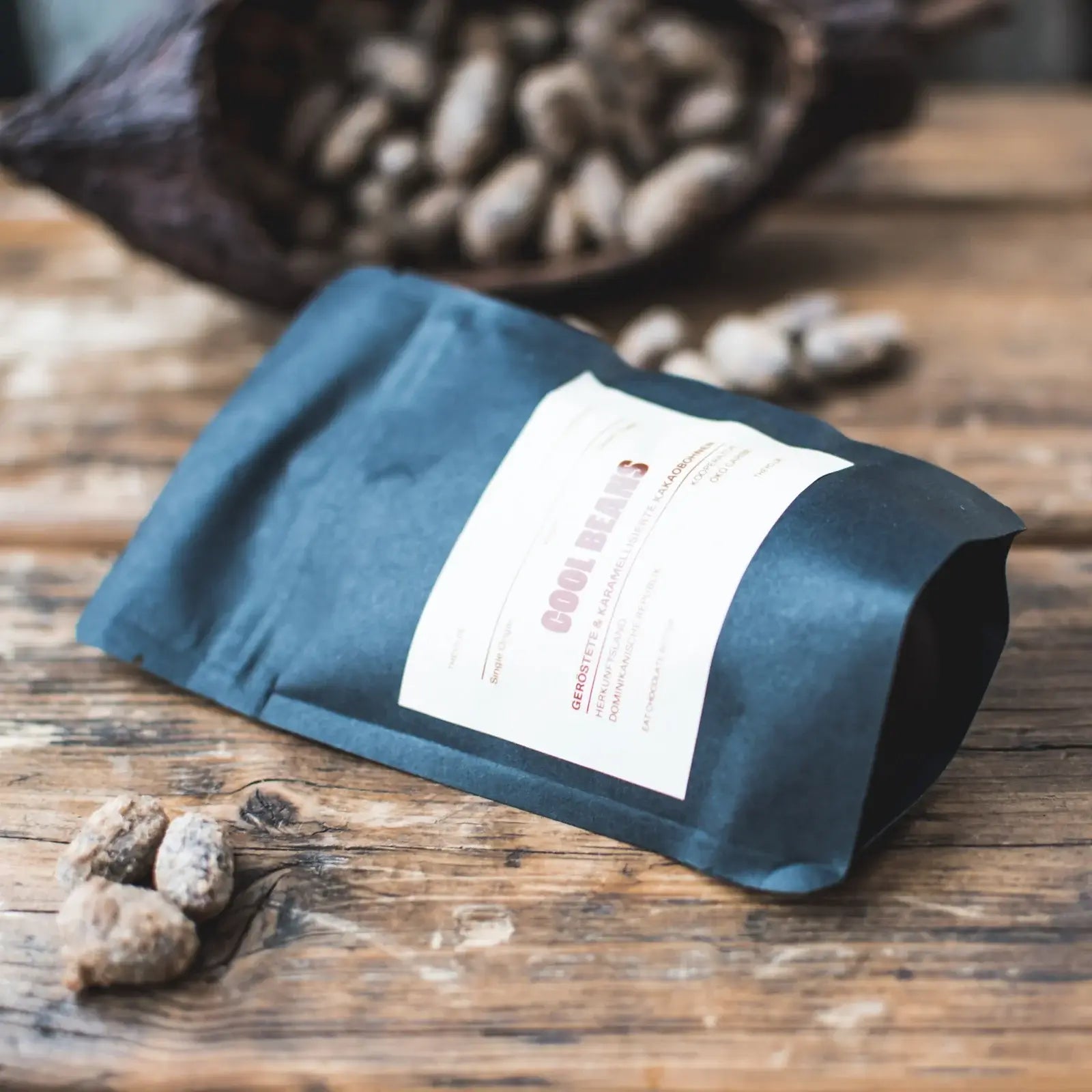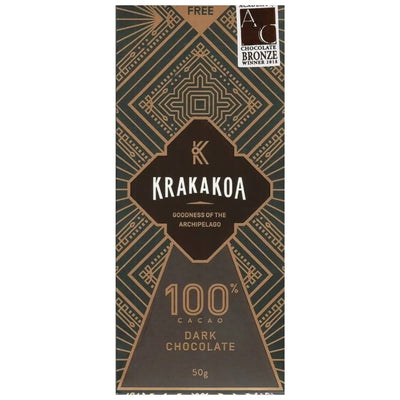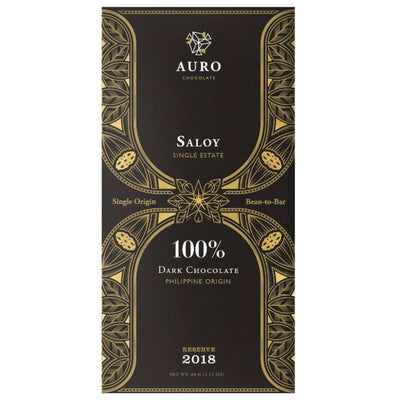Welcome to the Dark Side of Chocolate!
Dark chocolate & dark chocolate
Chocolate with a high cocoa content is often called dark chocolate, meaning dark chocolate. Not at Theyo! Our dark chocolates are masterpieces of fusing delicious cocoa with a touch of tenderness - the perfect combination for all chocolate lovers!
The term dark chocolate means dark chocolate, but there is a world of difference between these two terms! Despite the high cocoa content, our chocolates have an astonishingly mild taste and will amaze you with their harmonious unity of intensity and gentleness.
Would you like to try really mild dark chocolate (aka dark chocolate)? Want to know about its numerous benefits? Then you've come to the right place!
60 products

Is dark chocolate the same as dark chocolate?
Dark chocolate is actually a synonym for dark chocolate. The term “dark chocolate” is often used, especially in German-speaking countries, while “dark chocolate” is more common internationally. Both terms refer to chocolate with a higher cocoa content and a reduced sugar content compared to milk chocolate. However, it is important to note that there are different types of dark chocolate that differ in their cocoa content, such as 70 percent, 85 percent, or even 100 percent cocoa. The higher the cocoa content, the more intense the taste is usually. Particularly good dark chocolate - or as we prefer, dark chocolate - reveals complex flavors and, despite the high cocoa content, is anything but bitter.
What percentage is a dark chocolate?
With us you will find a diverse selection of dark chocolate with different cocoa contents, offering a wide range of flavors. Dark chocolate, also known as dark chocolate, is characterized by its higher cocoa content compared to other types of chocolate. Our product range includes chocolates with 100 percent, 90 percent, 80 percent, 85 percent, 70 percent and 60 percent cocoa.
Chocolates with a higher cocoa content, such as dark chocolate with 100 percent cocoa, have an intense, bitter taste and are particularly suitable for lovers of strong chocolate flavors. The dark chocolate with 70 percent cocoa, on the other hand, offers a balanced mix of bitterness and sweetness, while the varieties with 80 percent and 85 percent cocoa develop unique nuances. For those who prefer a milder experience, we recommend our dark chocolate with 60 percent cocoa.
In addition to being a treat, our dark chocolates are rich in nutrients such as antioxidants, iron, magnesium and fiber, which can provide various health benefits. Whether you prefer the strong taste of 100 percent cocoa or want to enjoy the subtler flavors of chocolates with a lower cocoa content - at Theyo you are sure to find the perfect dark chocolate for your individual taste. Let yourself be seduced by our exquisite selection and discover the fascinating world of dark chocolate - erhh dark chocolate
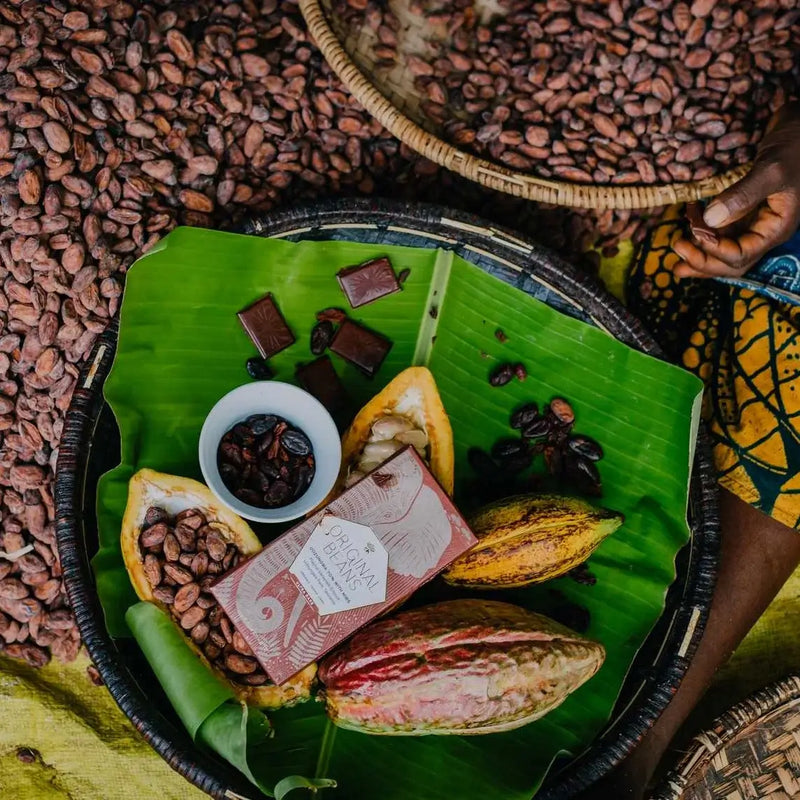
Is dark chocolate healthy?
Dark chocolate, also known as dark chocolate, is not only popular due to its delicious taste, but is also often associated with health benefits. Compared to milk chocolate, dark chocolate contains a higher percentage of cocoa and less sugar than dairy products, making it a potentially healthier option.
Various scientific studies suggest that regular consumption of small amounts of dark chocolate can have positive health effects. The cocoa components contained in it provide a variety of antioxidants, especially flavonoids, which can help fight cell damage caused by free radicals. This can reduce the risk of cardiovascular disease and support overall heart health. Dark chocolate can also help regulate blood pressure and improve blood circulation. It also contains minerals such as iron, magnesium and copper, as well as fiber, which can promote healthy digestion.
Ciao cocoa!
Do you want to organize a chocolate tasting with dark chocolates for your team?
At our chocolate tastings we only taste dark chocolates or dark chocolates. Simply contact us directly using our contact form.

MORITZ KLEINE BORNHORST
Tel.: +49 (0)30 4036376 50
Email: hallo[at]theyo.de
FAQ about dark chocolates and dark chocolates
Does dark chocolate have fewer calories?
In general, dark chocolate has a slightly lower calorie content compared to milk chocolate or white chocolate. This is because dark chocolate has a higher cocoa content and contains less sugar and milk ingredients.
However, the exact number of calories can vary depending on the brand and variety. The cocoa content can vary between different dark chocolates, and some brands may contain additional ingredients or fillings that affect the calorie content.
Is dark chocolate automatically vegan?
No, unfortunately not! Not all dark chocolate is automatically vegan. Dark chocolate refers to the cocoa content in chocolate. Normally, a cocoa content of 60% or more is considered bittersweet. Whether this chocolate is vegan depends on whether there are animal products in the ingredients. Traditionally, dark chocolate does not contain milk, but it may contain other non-vegan ingredients such as butterfat, butter oil or other animal products.
So be sure to pay attention to the ingredients when shopping. However, with us you can be sure that the dark chocolates are only made from the best ingredients and are vegan :)
What percentage is a dark chocolate?
The cocoa content in dark chocolate can vary depending on the brand and type. However, in general, dark chocolate contains a higher percentage of cocoa compared to milk chocolate or white chocolate.
Traditionally, dark chocolate contains at least 50% cocoa. However, some varieties can have a cocoa content of 60%, 70%, 85% or even higher. The higher the cocoa content, the less sugar and milk ingredients are usually contained, resulting in a more intense and bitter taste.
Should you eat dark chocolate every day?
Whether you should eat dark chocolate every day depends on a variety of factors, including individual dietary habits, health status, and personal preferences. Dark chocolate has some health benefits, but it's important to consume it in moderation.
The potential benefits of dark chocolate come primarily from flavanols, which are natural antioxidants and may have positive effects on the cardiovascular system. These flavanols can lower blood pressure, improve blood circulation and promote blood vessel health.
Nevertheless, chocolate also contains sugar and fat, which can lead to increased calorie and fat consumption if consumed in large quantities. But one thing is certain: the higher the cocoa content of the chocolate, the healthier it is :) We even have completely sugar-free chocolates, feel free to take a look here!
Which dark chocolate is the best?
Of course the dark chocolates in our range :) We regularly select the best dark chocolates from award-winning manufacturers for you. Another good starting point for finding the best dark chocolates is offered by institutions such as the “Academy of Chocolate”, which select the best chocolates every year. Here you can find the winners from 2022.
When should you eat dark chocolate?
The time when you can eat dark chocolate is not fixed and depends on personal preferences and individual dietary habits. Dark chocolate can be enjoyed at different times depending on how it fits into your daily diet and what effect you want to achieve.
Here are some suggestions for when to enjoy dark chocolate:
- As a snack: Dark chocolate can serve as a delicious and satisfying snack between meals. Choose a high-quality chocolate with a high cocoa content to reap the potential health benefits.
- After Meal: Many people like to enjoy something sweet after a meal. A small portion of dark chocolate can be a good way to satisfy a sweet craving.
- Pre-workout: Dark chocolate contains carbohydrates and can serve as a source of energy before a workout. However, pay attention to the calories and adjust the portion size accordingly.
- As an ingredient: Dark chocolate can be used as an ingredient in various desserts, baked goods or smoothies to achieve a richer and deeper flavor.
- When needed for mood enhancement: Dark chocolate contains chemical compounds such as phenylethylamine, which are known mood enhancers. However, it is important to note that consuming chocolate should not be used as a treatment for mood problems.
No matter the time or occasion, it's important to enjoy dark chocolate in moderation. A small amount may be enough to satisfy the taste buds and reap the potential health benefits without consuming too many calories or sugar.
How much dark chocolate should you eat daily?
Consumption of dark chocolate should be done in moderation. Experts typically recommend a moderate amount of about 1 to 1.5 ounces (about 28 to 42 grams) per day. It is important to include other sources of antioxidants and nutrients in your diet and not to eat too much chocolate to avoid excessive calories and added sugar.
Can you eat dark chocolate or dark chocolate while dieting?
Yes, dark chocolate or dark chocolate can be incorporated into a balanced diet in moderation. However, if you are following a diet or want to lose weight, it is important to keep an eye on your overall calorie intake and adjust your chocolate consumption accordingly.
What is the difference between dark chocolate and milk chocolate?
- Cocoa content: Dark chocolate contains a higher cocoa content compared to milk chocolate. Dark chocolate usually has a cocoa content of at least 50% and can contain up to 90% cocoa. On the other hand, milk chocolate tends to contain a lower percentage of cocoa, usually between 10% and 50%.
- Sugar content: Milk chocolate contains more sugar than dark chocolate. The higher sugar content in milk chocolate gives it a sweeter taste compared to the bitter and more intense dark chocolate.
- Milk Powder: As the name suggests, milk chocolate contains milk powder or condensed milk as an ingredient. This gives it its characteristic milky taste and creamy texture. Dark chocolate, on the other hand, usually does not contain any milk ingredients and is therefore suitable for people with lactose intolerance or milk allergies.
- Flavors and additives: Dark chocolate has a more intense and complex taste due to the higher cocoa content. It can have slightly fruity or earthy notes, depending on the origin of the cocoa. Milk chocolate, on the other hand, has a smoother and sweeter taste, which is rounded out by the added milk.
- Health Considerations: Due to the higher cocoa content, dark chocolate tends to contain more antioxidants and flavonoids, which can potentially provide health benefits. Milk chocolate also contains cocoa, but due to the lower cocoa content, the health benefits are more limited compared to dark chocolate.
It's important to note that chocolate is still a high-calorie treat in general, regardless of the variety. Chocolate should therefore be consumed in moderation to ensure a balanced diet. If you have specific health concerns or dietary needs, it is advisable to speak to a nutritionist or doctor for personalized recommendations.
What are the recommended portion sizes for eating dark chocolate?
The recommended portion size for consuming dark chocolate depends on individual dietary needs and goals. However, it is typically recommended to eat no more than 1-2 small pieces (approximately 20-30 grams) per day to reap the benefits without consuming excessive calories and fat.
What nutrients are contained in dark chocolate?
Dark chocolate contains a variety of nutrients resulting from the main ingredients cocoa, sugar and possibly other additives. Here are some of the key nutrients found in dark chocolate:
- Cocoa: Cocoa is the main ingredient in dark chocolate and contains several nutrients including:
- Fat: Dark chocolate contains fat, primarily in the form of cocoa butter. The type of fat can vary depending on the quality of the chocolate, but it usually contains saturated, unsaturated and trans fatty acids.
- Sugar: Dark chocolate also contains sugar, although the sugar content is typically lower compared to milk chocolate. The sugar contributes to the flavor and texture of the chocolate.
- Protein: Dark chocolate also contains protein, mainly from the cocoa portion. However, the protein content in chocolate is relatively low compared to other protein-rich foods.
- Vitamins: Dark chocolate may contain small amounts of vitamins, such as vitamin K.

